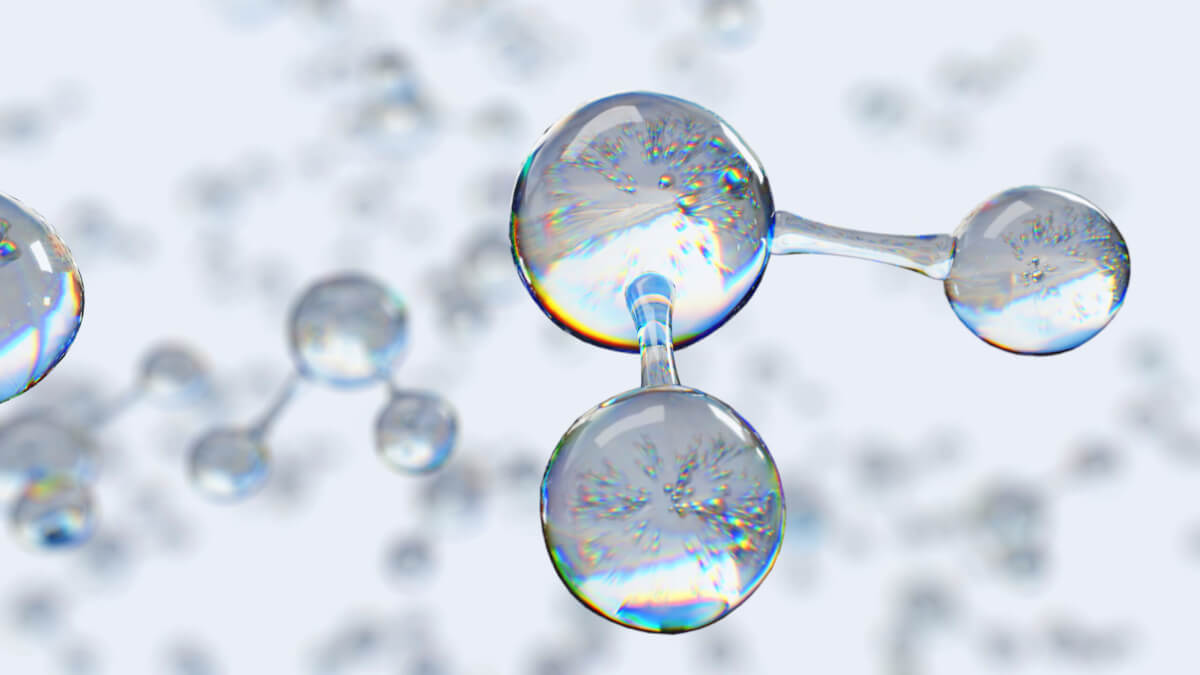
Photo by ExplorerBob from Pixabay
You might be thinking to yourself that the term “hydrogen water” is redundant because water already has hydrogen, but there is an actual difference. For years now, hydrogen water has been an on-and-off health trend. Now, TikTok gurus have rediscovered it and are promoting hydrogen water bottles regularly. So, why is there so much hype now?
What exactly is hydrogen water?
In an effort to promote this “special” water, one TikTok influencer claimed that water doesn't have hydrogen, so we have to put hydrogen in it. The chemical formula for water is famously H2O, meaning it has two hydrogen atoms and one oxygen atom. Therefore, plain water does indeed contain hydrogen. The only difference is that hydrogenated water has molecular hydrogen gas intentionally added to it.
It isn't a new development. Dating back to the 1960s, hydrogenated water has been part of the Japanese water market. It didn't officially hit the United States market until 2017.
People drink the ready-made products and even use at-home machines to make it themselves. Given that hydrogen atoms are so small, storing them in plastic water bottles makes it really easy to escape. Cans and pouches are better for this reason.
Molecular hydrogen doesn't dissolve easily into water, which is a significant barrier to its production. It takes a lot of pressure to get it to dissolve and involves expensive machinery. Hydrogen water bottles being promoted by wellness influencers cost around $30 and likely do not generate enough power to get this process to work. The bottles use a process called electrolysis, where an electric current essentially splits the water into hydrogen and oxygen to allow the hydrogen gas to work more efficiently, in theory.

Is it worth trying?
There is interesting research out there on molecular hydrogen. The main selling point of hydrogen water is that the extra hydrogen revs up antioxidant activity to protect the body.
Oxidative stress is at the center of several diseases, making this an appealing health product. There is interesting research out there on molecular hydrogen, mainly focusing on the inhalation of the gas itself. Companies in this market often promise that the water will improve muscle fatigue, cut inflammation, enhance workout recovery, and more.
The reality is that hard evidence to support this is lacking.
Even if there were a better understanding of this, how much your body actually needs to see clinical benefit would need to be another thing to explore. Right now, we just don't know.
Moreover, most bottles of hydrogen water on the market aren't generating enough pressure to allow the hydrogen gas to dissolve fully. Even if it did, you'd have to hurry and drink the water quickly, as the gas will attempt to escape as soon as you do. So, not only is it likely that not enough will even be produced by the water bottle, but you could also lose it before drinking all of it.
Bottom Line
Most people aren't getting enough water in general, so we need to start addressing that issue first. The research and feasibility of hydrogen water are too uncertain to start making sweeping claims that everybody needs it.
Many influencers have stated that you don't actually get hydrated from plain water and that hydrogen water is the best product you can get your hands on to correct that. The reality is that drinking enough plain water can help your body regulate itself in many different contexts, which are essentially the same benefits that influencers are saying that hydrogen water specifically provides.
So, focus on getting more water in general. There are more concrete ways to support antioxidant activity, like eating more antioxidant-rich foods and engaging in consistent exercise, than searching for a “special” form of water.










